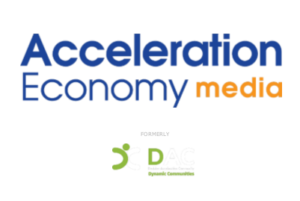Copilot 101: A Deep Dive Into Microsoft Copilot
In the first episode of the “Copilot 101 Podcast,” Shawn Dorward, Vice President, sa.global, UG Expert, gives a high-level review of Microsoft Copilot, explaining what it is and how it can be applied to the context of your business.
This episode is sponsored by the AI Copilot Summit NA, taking place March 17-19, 2025 in San Diego, California.
Key Takeaways
- Overview: In the “Copilot 101 Podcast,” Shawn will discuss the benefits and areas of improvement relating to Microsoft Copilot, share personal experiences on adoption, and introduce the basics of Copilot, including where to find and how to use it. This first episode will provide an overview and insights into Shawn’s journey with Copilot.
- Understanding Copilot: Copilot is Microsoft’s initiative to integrate artificial intelligence into their applications and desktop environments, making AI accessible at various levels. Essentially, it serves as a “brand name” for Microsoft’s capability to embed AI into their products.
- Difference from Chat GPT: One key difference between Chat GPT and Copilot is that while Chat GPT costs $20 a month, Copilot is available for free with Windows 11. The Copilot interface is very similar to Chat GPT and performs the same tasks, allowing users to save money.
- Copilot as a digital assistant: Copilot is Microsoft’s digital AI assistant designed to help users save time and effort by providing a starting point for tasks and automating routine activities. It integrates artificial intelligence into applications, similar to how digital assistants like Google Home or Amazon’s Alexa function in a home setting.
- Need for human influence: Understanding Copilot involves recognizing both its capabilities and limitations. While it serves as a digital assistant to help with various tasks, it is not a human replacement and requires user validation and expertise to ensure it performs correctly.
- Improve reliability with usage: Copilot builds context from your work environment, such as SharePoint, OneDrive, calendars, and documents, but it is not a replacement for humans and is continually evolving. Recognizing its imperfections and ongoing development is crucial, as its effectiveness improves with usage.
Stream the audio version of this episode here:


